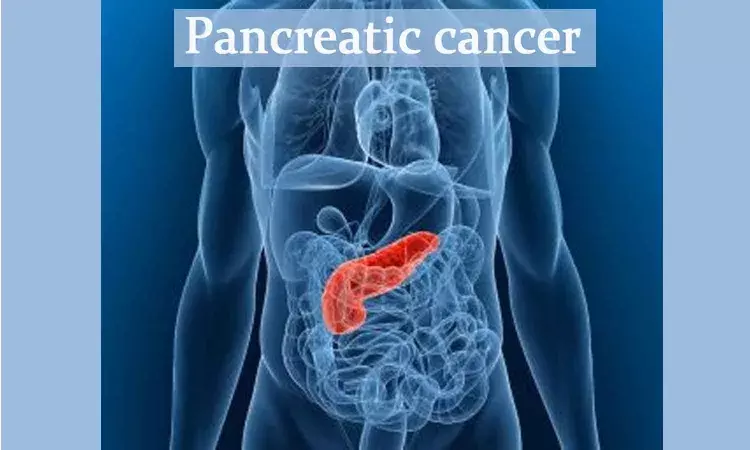- Home
- Medical news & Guidelines
- Anesthesiology
- Cardiology and CTVS
- Critical Care
- Dentistry
- Dermatology
- Diabetes and Endocrinology
- ENT
- Gastroenterology
- Medicine
- Nephrology
- Neurology
- Obstretics-Gynaecology
- Oncology
- Ophthalmology
- Orthopaedics
- Pediatrics-Neonatology
- Psychiatry
- Pulmonology
- Radiology
- Surgery
- Urology
- Laboratory Medicine
- Diet
- Nursing
- Paramedical
- Physiotherapy
- Health news
- Fact Check
- Bone Health Fact Check
- Brain Health Fact Check
- Cancer Related Fact Check
- Child Care Fact Check
- Dental and oral health fact check
- Diabetes and metabolic health fact check
- Diet and Nutrition Fact Check
- Eye and ENT Care Fact Check
- Fitness fact check
- Gut health fact check
- Heart health fact check
- Kidney health fact check
- Medical education fact check
- Men's health fact check
- Respiratory fact check
- Skin and hair care fact check
- Vaccine and Immunization fact check
- Women's health fact check
- AYUSH
- State News
- Andaman and Nicobar Islands
- Andhra Pradesh
- Arunachal Pradesh
- Assam
- Bihar
- Chandigarh
- Chattisgarh
- Dadra and Nagar Haveli
- Daman and Diu
- Delhi
- Goa
- Gujarat
- Haryana
- Himachal Pradesh
- Jammu & Kashmir
- Jharkhand
- Karnataka
- Kerala
- Ladakh
- Lakshadweep
- Madhya Pradesh
- Maharashtra
- Manipur
- Meghalaya
- Mizoram
- Nagaland
- Odisha
- Puducherry
- Punjab
- Rajasthan
- Sikkim
- Tamil Nadu
- Telangana
- Tripura
- Uttar Pradesh
- Uttrakhand
- West Bengal
- Medical Education
- Industry
Sortilin may hold key to counter pancreatic cancer more effectively

Philadelphia - Pancreatic cancer has an extremely poor prognosis; it is the third most common cause of cancer deaths in the United States. In a novel study published in The American Journal of Pathology, published by Elsevier, scientists report the discovery of an increased level of the neuroprotein sortilin in pancreatic cancer cells that may open up the way to developing more effective treatment.
"There is currently no good therapy for pancreatic cancer," explained lead investigator Hubert Hondermarck, PhD, School of Biomedical Sciences and Pharmacy and Hunter Medical Research Institute at the University of Newcastle, Australia. "What we need is a targeted therapy that could slow down the rapid progression of the disease to allow more time for chemotherapy and radiotherapy to be more effective."
The neuronal membrane protein sortilin is emerging as a key player in the regulation of neuronal viability and function, and there are increasing indications that it is involved in the deregulation of cancer cell viability. Sortilin is overexpressed in breast, lung, and thyroid cancer; it can promote cancer cell invasion in glioblastoma; and it participates in cancer cell adhesion and metastasis in colorectal cancer. However, its expression and impact in pancreatic cancer was not previously known.
In this study, investigators examined several pancreatic cancer cell lines alongside pancreatic ductal epithelial cells and established that sortilin expression was higher in the cancer cells, as demonstrated by Western blot and mass spectrometry. The increased sortilin level in pancreatic cancer cells was confirmed by immunohistochemistry in a series of 99 human pancreatic adenocarcinomas compared to 48 normal pancreatic tissues.
Furthermore, sortilin was found to contribute to pancreatic cancer invasion in vitro through potentially maintaining the focal adhesion kinase (FAK) signaling pathway. Researchers also found that sortilin levels were higher in female pancreatic cancer patients compared to males. "Our finding of higher sortilin expression in female patients suggests a possible regulation of sortilin gene expression by estrogen receptors, but further functional analyses are needed to confirm this hypothesis," noted Dr. Hondermarck.
The main issue with pancreatic cancer is the local invasiveness of the tumor that leads to the destruction of the pancreas, rapidly causing death. This study showed that inhibiting sortilin with specific drugs or immunotherapy leads to a strong decrease in pancreatic cancer cell invasiveness. Therefore, specifically targeting sortilin is likely to complement and improve the efficacy of existing treatments. However, no statistically significant association was found between sortilin expression and pancreatic cancer aggressiveness. Therefore, although sortilin contributes to pancreatic cancer cell invasion, it is likely not the only factor involved.
"Together, these data reveal that sortilin contributes to pancreatic cancer invasion and is a potential therapeutic target," commented Dr. Hondermarck. "This discovery may lead to the development of more efficient treatment against the disease."
Pancreatic cancer is one of the most aggressive malignancies, with less than nine percent patient survival after five years. It is the seventh most common cause of cancer deaths worldwide and the third most common in the US. The most common type is pancreatic adenocarcinoma, which accounts for 90 percent of cases. Current therapeutic approaches include surgery, radiotherapy, and chemotherapy. Surgery is the most common treatment for early-stage pancreatic cancer, but it can be performed in less than twenty percent of patients. The main drug currently used to treat pancreatic cancer, gemcitabine, has only a limited therapeutic effect.
Hina Zahid Joined Medical Dialogue in 2017 with a passion to work as a Reporter. She coordinates with various national and international journals and association and covers all the stories related to Medical guidelines, Medical Journals, rare medical surgeries as well as all the updates in the medical field. Email: editorial@medicaldialogues.in. Contact no. 011-43720751
Dr Kamal Kant Kohli-MBBS, DTCD- a chest specialist with more than 30 years of practice and a flair for writing clinical articles, Dr Kamal Kant Kohli joined Medical Dialogues as a Chief Editor of Medical News. Besides writing articles, as an editor, he proofreads and verifies all the medical content published on Medical Dialogues including those coming from journals, studies,medical conferences,guidelines etc. Email: drkohli@medicaldialogues.in. Contact no. 011-43720751


